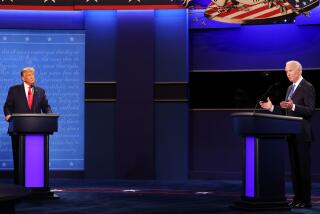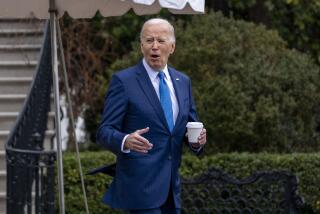Chris Christie: The politics of weight
Straight-talking New Jersey Gov. Chris Christie is a portly guy -- and has spoken publicly in the past about his struggles with the scale. Now that he might be a contender for Republican nominee for president, other people are speaking publicly about his weight, too, and what impact it might have on his electability next November.
Washington Post columnist Eugene Robinson wrote that the governor needed to lose weight for his (and the country’s) health. Others complained that an inability to lose weight was a sort of failure of character. Still others rushed to the would-be candidate’s defense, writing that fretting over Christie’s weight had more to do with prejudice than with real concerns about politics.
Clearly, Christie is electable (at least, as governor.) Perhaps even more so: last year, political scientist Beth J. Miller and psychologist Jennifer D. Lundgren, both of the University of Missouri in Kansas City, published research suggesting that a portly physique was a political asset -- in men.
The researchers recruited 120 students for their experiment, one-half of whom were assigned to read about female candidates for office and the other half to read about male candidates. Each of those groups was further divided into two, one half reading about obese candidates and the other about non-obese candidates. The candidates were described in detail, and study participants even got to see pictures.
Heavy women didn’t fare well: Obese female candidates were evaluated most negatively of any group. But obese men came out well, getting fewer negative marks than their thinner counterparts.
“Larger body size may be an asset for male candidates,” the researchers wrote, in a study published in the journal Obesity in April 2010.
One concern expressed by pundits Friday was that Christie, if elected, would have trouble carrying out his duties as president because of weight-related health problems. “Like everyone else, elected officials perform best when they are in optimal health. Christie obviously is not,” Robinson opined.
At least one physician has offered a perspective on that notion, as well, but with conclusions that may be less encouraging to Christie.
The last obese person to be elected president was William Howard Taft, who weighed around 300 pounds when he ran for office in 1908, and maintained that weight throughout the time he was president. A 2003 paper from the journal Chest suggests that Taft’s weight did cause problems for him when he was in office, including sleep apnea that left him drowsy and, perhaps, unfit to govern.
“As President, Taft could fall asleep anywhere, anytime. He fell asleep during conversations with the Speaker of the House, the Chief Justice of the Supreme Court, and the wife of the French ambassador. He napped before and after a mid-morning meeting with the President of Mexico,” wrote cardiologist and sleep disorder specialist Dr. John G. Sotos.
But still there was hope for Taft, who dropped 60 pounds after he left office and kept the weight off (and his mind alert) during his tenure as chief justice, Sotos wrote.
More to Read
Get the L.A. Times Politics newsletter
Deeply reported insights into legislation, politics and policy from Sacramento, Washington and beyond. In your inbox three times per week.
You may occasionally receive promotional content from the Los Angeles Times.











